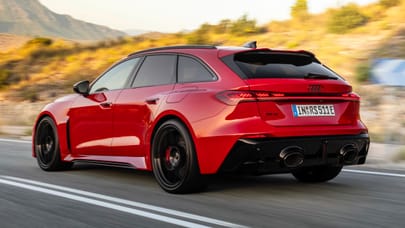
ZEV mandate: debunking some of the misleading talk
There's been a lot of noise around the UK's electric car rules - TopGear.com is here to straighten it all out
There's been a lot of talk in the media and down the pub about possible changes to the UK Government's 'Zero Emission Vehicle' (ZEV) mandate – the measure that says manufacturers must sell a percentage of their cars and vans as zero-emissions. Some of that talk is misleading, so TopGear.com is here to straighten a few things out.
First, the closing of the Stellantis Luton plant. It has been referred to in the media as a car factory. It isn't. It makes vans. Electric vans are indeed a fairly hard sell compared with electric cars. They often have to drive further in a day, and yet because their loads are heavy and their aero drag brutal, they go less far on a charge.
Some fleets, for city deliveries where they have overnight depots handy for slow-recharging, have found electric vans to be brilliant. But not enough.
So there's perhaps scope to ease the ZEV mandate on vans, while leaving it in place for cars.
Now, cars. Recently I heard Ford's UK boss Lisa Brankin appealing for electric-car subsidies, or at least tax breaks for private buyers. Many would see this as a sensible approach.
People who get an electric car instead of petrol on their company car schemes can easily save hundreds of pounds a month of tax. Nothing similar is available to private buyers.
Though no-one asked Brankin why Ford isn't selling a new electric car at less than £45,875, and whether she thinks it'd shift more EVs if it did. (To be fair an electric Puma is coming. But not for months.)
From other manufacturers sub £25k electric cars, even sub-£20k ones, are available.
I also heard the former plant manager of Stellantis Luton saying on the radio people aren't buying electric because "there's no infrastructure". There's perhaps not quite enough for you to be able to do long EV journeys without a little planning, but I've often done it, and you really can go anywhere in Britain in an EV.
But if people come onto the media and make statements like that – totally unchallenged – then you can't blame the public for thinking infrastructure is flakey.
Top Gear
Newsletter
Thank you for subscribing to our newsletter. Look out for your regular round-up of news, reviews and offers in your inbox.
Get all the latest news, reviews and exclusives, direct to your inbox.
Such uncertainty is making them nervous about buying an electric car. Who can blame them? So is confusion about the date of phase-out of combustion car sales – it has moved from 2040 to 2035 to 2030 to 2035 to 2030. That's inevitably having an effect on new-car buyers because it makes it hard to predict their car's future value whatever its powertrain.
In such an unpredictable climate, infrastructure worries become self-perpetuating. After all, uncertainty gives pause to charge-point network investors because they can't know how big their market will be.
To be clear, we aren't saying EVs are for everyone. And no-one else is: next year, the ZEV mandate says only 28 per cent of new-car sales must be zero-emission. Here are some reasons why that's OK.
Considerably more than 28 per cent of people who buy new cars can park at home. So they can charge cheaply overnight, saving cost per mile. And have a full battery in the morning.
Over the course of a year, there's probably only a few days when they do more than 250 miles. Those would be the only few days they'd need the public rapid-charging infrastructure at all.
Sure, lots of people live in inner cities and flats, and EVs aren't that great for them. (But most of them aren't part of this discussion. In the London borough of Islington for example, 70 per cent of households don't have a car at all. Thus whether it's not-petrol or not-electric doesn't matter.)
In other words, TopGear.com absolutely isn't saying all new-car buyers will want an EV. If you can't charge at home or work, or often do 500-mile days, or you just love engines, you might still choose to get an ICE.
As many as 72 per cent of buyers could do that, and we'd still hit the 2025 mandate of 28 per cent zero-emissions.
Trending this week
- Top Gear Advice
Here are 19 brilliant cars that are cheaper than you think








